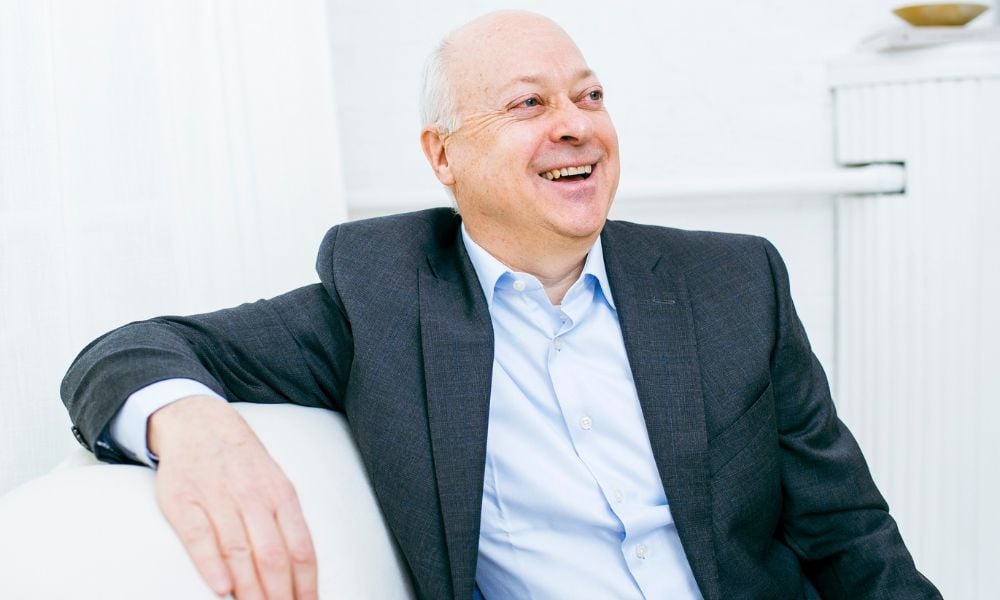Chairman and CEO of longstanding family office explains the skills he looks for when recruiting advisors to his $15 million asset minimum practice

Plenty of advisors want to work for a family office. Take Northwood Family Office in Toronto, for example, where the minimum liquid investable asset requirement for clients is $15 million. The challenges and rewards that come with managing assets on that scale are obvious, but the path to that role may not seem as clear.
Northwood’s chairman and CEO Tom McCullough (pictured) explained that for advisors looking to serve this class of client, breadth is key.
“We’re like a general contractor,” McCullough says. “In the trades you’ll have plumbers and electricians. In our business, those are lawyers and accountants. It’s our job as the general contractor is to see the big picture, manage all the moving parts, and get things done.”
Who Northwood Recruits
Recruiting someone with those skillsets, what McCullough calls an “integrated advisor”—can be challenging, given most advisors start with quite a specific focus, largely on investments. Investment management is only one of the four key areas Northwood covers for its clients. The others are planning—including goal setting, cash flow projections, tax, estate, and philanthropic plans, wealth administration, and family engagement. It takes a range of hard and soft skills, as well as a wide breadth of knowledge, to manage all those components.
McCullough would love to be able to hire an integrated advisor from the get-go, but there aren’t many people out there that meet his clients full range of needs. His approach, therefore, has been to identify advisory talent and train them on the other range of skills. Northwood hires from specific professions, usually someone who already has their CFA or CPA, and then requires them to achieve their CFP designation. All the while, they need to build a wide network of specialists to collaborate with to ensure their clients get the best service.
“If you start out as a tax person, but you haven’t been practicing tax full time for the last six months, then you’re out of practice,” McCullough says. “Our view is that the world has a lot of great tax people, great investment people, great family governance people. What’s been missing is that great [integrated advisor] to manage the process.”
The integrated advisor role doesn’t mean McCullough’s team is walking their clients’ dogs or getting them theatre tickets, as is sometimes the stereotype when we think of family offices. Rather, it means they are willing to take on a complex, unique problem and solve it. For example, if a client has a British pension plan they need to repatriate to Canada, it’s on McCullough’s advisors to figure out how to do that. Or if a client needs homecare for a parent living in another city, McCullough’s advisors can make that happen. Family office clients are inherently complex, and McCullough believes it takes a generalist to manage that complexity.
Becoming an integrated advisor
Advisors looking for this sort of work, McCullough explains, should begin by achieving their CFPs. They should also be prepared to shift their client books significantly. Most advisors’ clients wouldn’t qualify for Northwood’s asset cutoff. So for an experienced advisor with an existing book, joining a family office might involve jettisoning clients. Many other advisors don’t want to become generalists. Those who live and breathe investments, for example, may not find the more wide-ranging work of a family office rewarding. That’s some of why McCullough tends to hire younger advisors.
He cites the example of one advisor who joined Northwood aged 28. The advisor had his CFA and a strong background in investment management. That advisor has spent the past 17 years at Northwood, growing into a knowledgeable integrated advisor taking care of the firm’s largest clients, and he’s still only 45.
The scale of client assets at a family office makes the work appealing for many advisors. Others may be more attracted to the complexity of the work, and the challenge of finding novel solutions. For McCullough, one of the great draws is the client-centricity of the work.
“There’s nothing to sell,” McCullough says. “We have no agenda to sell them, we are literally sitting on their side of the table, helping them get the services they need. There’s what I sometimes call a purity in the model, there’s no subversive element, there’s nothing we try to do beyond get them what they need. Clients appreciate that, and they trust us because we help them in such significant ways.
“The family office is much more diverse than a typical practice. You have to really want to be that generalist to be in the family office world. And that's not for some people, but for others it can be very, very fulfilling.”



